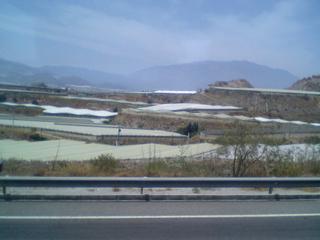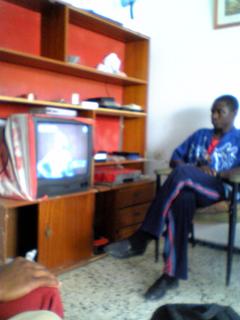End of Sequence: Yuseph
 "We hoped for manual labor, human beings arrived." -- Max Frisch
"We hoped for manual labor, human beings arrived." -- Max FrischYuseph was my guide to the mosques of El Ejido, which are discrete and defended. The Moroccan mosque is also the new site of El Ejido´s ACOGE office.
Spanish mobs destroyed the old ACOGE office, along with a progressive Muslim woman NGO office and many Moroccan homes and businesses, in the riots of 2000. This wave of violence began with the murders of three Spanish citizens at the hands of two Moroccan immigrants.
Behind Yuseph are the greenhouses or "invernaderos." This picture was taken less than a block from a residential park.
"At the same time, this emerged from a municipality in which the urban and the rural are frequently interspersed, where you can find greenhouses right in the middle of urban El Ejido and apartments amongst the greenhouses, which suggests that many people, when they return to their houses, pass through zones which are very unsettling, especially at night, and where the presence of an immigrant might unleash a great deal of fear." from Checa, 111, my translation.






